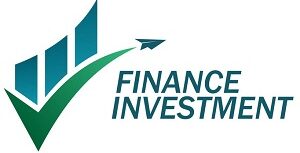In the dynamic landscape of Finance and Insurance (F&I) within the automotive industry, staying ahead of the curve is crucial for success. As the F&I sector evolves, so does the need for well-trained professionals. This article serves as a comprehensive guide to help individuals and organizations choose the right F&I training, ensuring a competitive edge and sustained success.
The Evolving Role of F&I Professionals
The role of Finance and Insurance professionals has evolved beyond traditional transactional functions. Today, they are key contributors to dealership profitability and customer satisfaction. With the integration of advanced technologies, compliance regulations, and changing consumer behaviors, F&I professionals must possess a diverse skill set.
The Impact of Effective F&I Training
Investing in F&I training goes beyond compliance – it directly impacts a dealership’s bottom line. Well-trained F&I professionals can maximize revenue through improved product penetration, enhanced customer experience, and effective risk management. Choosing the right training program is pivotal for unlocking these benefits.
Accreditation and Certification
Ensure the chosen F&I training program is accredited and recognized within the industry. Accreditation signifies that the program meets certain standards and is endorsed by relevant authorities. Certification adds credibility to an individual’s skillset, making them more marketable in the competitive F&I job market.
Curriculum Relevance and Depth
Examine the curriculum of the training program. It should cover a broad spectrum, including finance and lease options, compliance, sales techniques, and customer relations. A well-rounded curriculum ensures that F&I professionals are equipped to handle diverse challenges in the field.
Industry-Relevant Instructors
The quality of instructors significantly influences the effectiveness of F&I training. Look for programs that feature industry experts and seasoned professionals as instructors. Their real-world experience brings a practical dimension to the training, offering valuable insights that go beyond textbook knowledge.
Technological Integration
In the digital age, F&I professionals need to be proficient in leveraging technology. Choose a training program that incorporates the latest tools and software used in the F&I sector. This ensures that trainees are well-prepared to navigate the technological landscape of modern dealerships.
Classroom vs. Online Training
Consider the advantages and disadvantages of different delivery methods. Traditional classroom training offers a structured environment for learning, while online training provides flexibility. Opt for programs that offer a blend of both to cater to different learning preferences and schedules.
Simulations and Practical Exercises
Interactive elements such as simulations and practical exercises are essential for effective F&I training. They allow trainees to apply theoretical knowledge in a controlled environment, enhancing their problem-solving skills and confidence. Programs with hands-on components contribute to a more holistic learning experience.
Continuing Education and Updates
F&I is a dynamic field, subject to regulatory changes and industry trends. Choose a training program that emphasizes ongoing education and provides updates on relevant developments. This ensures that F&I professionals stay current with industry best practices and compliance requirements.
Networking Opportunities
Training programs that facilitate networking within the automotive and F&I industry are invaluable. Networking provides access to mentors, industry events, and job opportunities. Look for programs that actively connect trainees with professionals and organizations in the F&I sector.
Placement Assistance and Job Placement Rates
A training program’s success is often reflected in its graduates’ ability to secure employment. Investigate the program’s job placement rates and the level of assistance provided in securing positions. Programs with strong industry connections and a history of successful placements are likely to yield better outcomes.
Conclusion
Choosing the right F&I training is a strategic decision that can shape the trajectory of a career or a dealership’s success. By considering factors such as accreditation, curriculum, delivery methods, industry networking, and placement assistance, individuals and organizations can make informed choices. The investment in high-quality F&I training pays dividends by producing skilled professionals who contribute to the growth and sustainability of the automotive industry. Stay ahead of the curve, embrace continuous learning, and navigate the road to excellence in Finance and Insurance.










